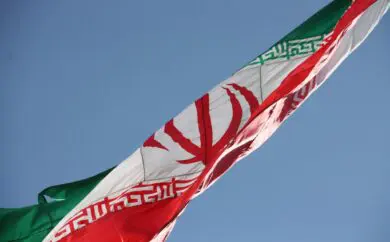
On January 1st 2017 New York State’s Department of Financial Services (DFS) Part 504 went live. This rule provides a clarification on how OFAC and other lists are screened and how transactions are monitored. The impacts of this rule may […]

On January 1st 2017 New York State’s Department of Financial Services (DFS) Part 504 went live. This rule provides a clarification on how OFAC and other lists are screened and how transactions are monitored. The impacts of this rule may […]

The FATF sets out its guidance for the regulation and supervision of DNFBPs in its 40 Recommendations (specifically Recommendation 24). The guidance requires jurisdictional authorities to take various supervisory steps, including: Implementing licensing requirements and ownership criteria for casinos. Introducing […]

The European Union Fourth Money Laundering Directive (4AMLD) was ratified by the European Parliament in 2015 and was implemented in all EU states on the 26th of June, 2017. It was transposed into UK law on the same date via […]

Many uncertainties and misunderstandings surround politically exposed persons (PEPs). Classifying a client as a PEP is part of the process that enables financial institutions (FIs) and designated non-financial businesses and professions (DNFBPs) to assess the risks related to PEPs. Since […]

An ultimate beneficial owner (UBO) is someone who ultimately owns or controls a company and benefits from its financial transactions. Because UBOs sometimes seek to remain anonymous, often through a complex chain of corporate infrastructure, they may not be immediately […]

Numerous governments have imposed sanctions against Iran over the past several decades. Iran sanctions measures entail a variety of economic restrictions and have broadly been imposed in response to the Iranian government’s involvement in incidents of international terrorism, its involvement […]

The US government first imposed economic sanctions against Cuba on February 7th, 1962, in response to the Cuban government’s political alignment with the Soviet Union and its ongoing efforts to undermine democratic processes. Implemented by President Kennedy under the terms […]

Economic sanctions against Syria are a response to the Syrian government’s use of chemical weapons against civilians and its sponsorship of terrorist groups. Numerous governments currently maintain Syria sanctions programs, which entail a variety of economic restrictions including trade embargoes, […]

What does the Mexican Unidad de Inteligencia Financiera do? Created in 2004, the Mexican Unidad de Inteligencia Financiera (UIF) is a government agency focused on detecting and preventing financial crimes such as money laundering and terrorist financing. The UIF is […]

Overview of the Egmont Group Of Financial Intelligence Units The Egmont Group of Financial Intelligence Units is an important global financial network. Comprising over 150 members FIUs from around the world, the group was founded in 1995 to formulate coordinated policies […]

Overview of the Wolfsberg Group The Wolfsberg Group, an association of 13 global banks, is one of the several non-governmental organisations that are involved in managing the international economy. The group was founded in 2000 with the aim of contributing […]

The Conselho de Controle de Atividades Financeiras (COAF) is Brazil’s national Financial Intelligence Unit (FIU) and is the supervisory body responsible for fighting financial crime. Founded in 1998 and headquartered in the capital city, Brasilia, COAF is part of Brazil’s […]